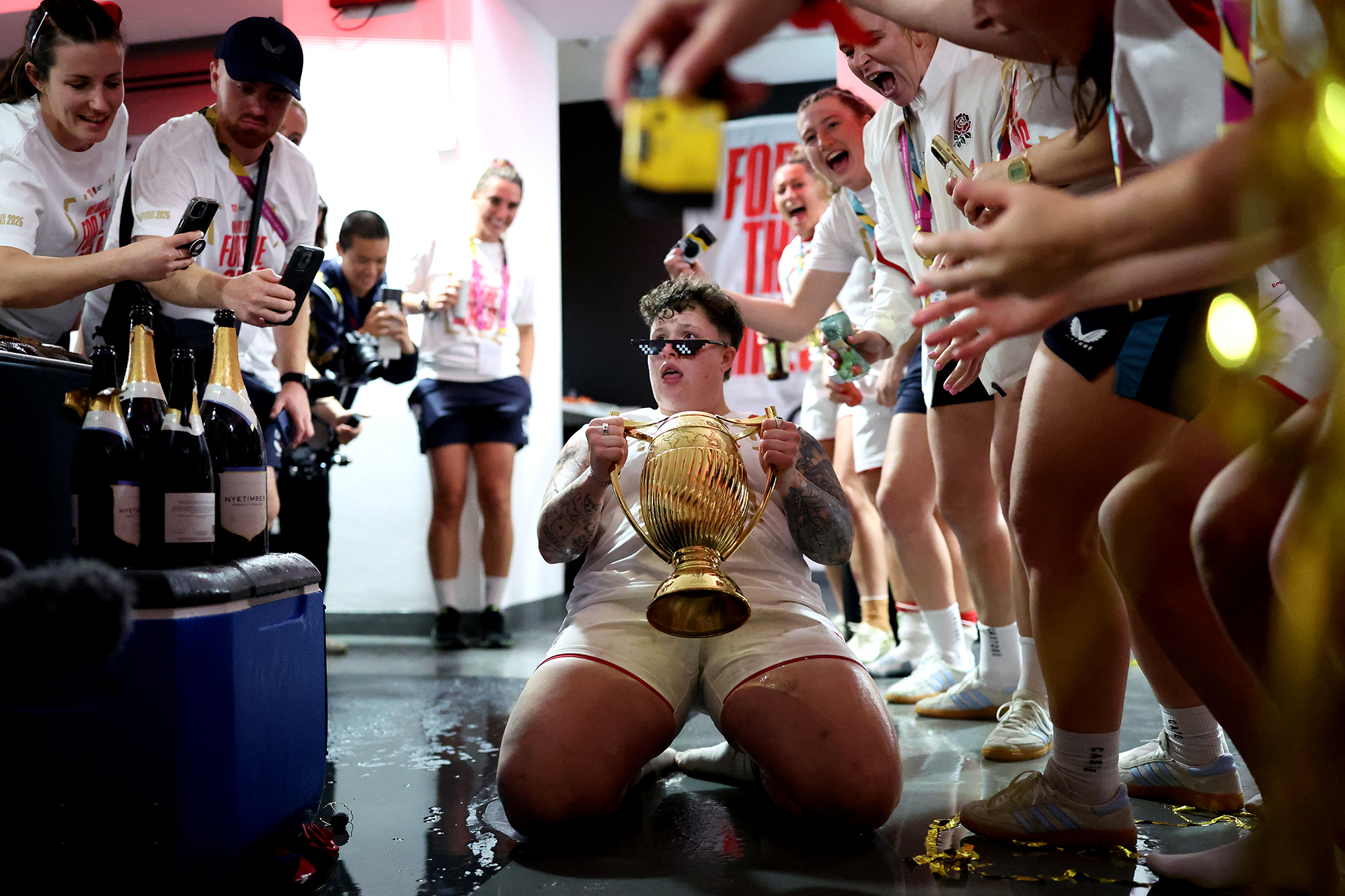It has been a tale of two summers. On one hand, the glory: the Lionesses, the Red Roses and the surge of women and girls taking up space on the pitches, courts and tracks of this country. Stadiums filled, records broken, and barriers smashed – a summer that generations of women were told would never come.
On the other hand, the backlash: torrents of misogyny, toxic abuse, and the stubborn message, shouted online, whispered in boardrooms, and coded into investment decisions: women’s sport still isn’t equal, still isn’t as safe as it should be, and still isn’t valued as highly as men’s.
This tension tells us something important. Progress is real, but it is also fragile. We cannot be lulled into complacency when women’s achievements are so often matched, step for step, by misogynistic hostility.
Participation in women and girl’s rugby and football in England is at an all-time high: last year over 835,000 girls regularly played football; an increase of over 165,000 girls compared to figures from 2017, and there’s been a 35% increase in girls registered to play rugby since 2022. The Rugby World Cup final was the most watched rugby match of the year; nearly 82,000 fans flooded the Allianz Stadium in Twickenham to witness it first hand – a record for a women’s rugby match and the second-highest attendance for a men’s or women’s World Cup final, only behind the 2003 World Cup final.
It’s proof that the audience is there, hungry for more. Summer 2025 has been decades in the making; years of investment from the National Lottery, Sport England and our partners, and the resilience of the national women’s teams have paved the way for today’s winners.
But the abhorrent misogyny and toxic online abuse we have seen directed at our female athletes – which prompted me to write to Ofcom in my capacity as the chair of Sport England – feel worryingly prevalent.
Ofcom and Kick It Out published a report in May that found that online hate and abuse is worsening over time, becoming more common, sophisticated and dangerously normalised. Eight of the top ten most abused athletes on X during the 2024 NCAA March Madness series were female players. And more than half of all abuse during the 2023 World Athletics Championships was racist or sexualised in nature. Alongside this, research shows young men are being more drawn towards far-right values which favour traditional gender roles. It’s very hard to imagine these values being compatible with women being visible and equal to men in sport.
And money talks – so let’s look at the bottom line. The gaps in prize money for male and female football teams are astonishing, bordering on obscene; for the Uefa Women’s Euro 2025 the total prize money was a record €41m (£35.7m), but the men’s 2024 pot was €331m.
The Rugby World Cup also revealed a stark disparity in investment between some national women’s teams compared with their male counterparts, conveying the message that women’s sport is not as important as men’s.
This is underlined by men’s sport receiving the vast majority of media attention – often exceeding 80% of total sports coverage here in the UK. In addition, the This Girl Can campaign finds that fear of being harassed is a consistent major barrier to women getting active. And a recent AI-powered study, written about in The Observer last week, found that in online imagery of sport, Black women, South Asian Muslim women and disabled women are barely represented at all. It’s an insidious misogyny, erasing entire communities of women from view in the world of sport.
Newsletters
Choose the newsletters you want to receive
View more
For information about how The Observer protects your data, read our Privacy Policy
All of these issues – lack of investment, lack of respect, lack of visibility and safety fears – contribute to a stubborn gender activity gap. Sky’s recent report found that closing the gender participation gap could unlock £6.5bn in economic benefits by 2035. The evidence is clear: women and girls taking part in sports is good for society.
For the positive trajectory of women’s sport to continue – and to prevent it being threatened and undermined by misogyny – meaningful male allyship is needed. Space must be made at the table, where most of the seats are currently occupied by men.
What does that mean in practice? For us men, it means calling out the behaviour that sees women change their routines in order to feel safe when exercising after dark. It means us men asking difficult questions if our daughters don’t enjoy the same opportunities to play sport as our sons.
It means us men publicly calling out poor behaviour on social media. It means us men not being apathetic: if you didn’t engage with the women’s Euros but would have booked a week off work to celebrate if the men’s team had won – why?
For those that work in sport, it means proper investment in grassroots opportunities for women and girls. And at a competitive level, making sure female talent pathways are as stable and secure as the men’s. For visibility, we urge broadcasters to commit to 50/50 coverage of men and women’s sport.
And We Like The Way You Move, the new phase of This Girl Can, is targeting the women who are still left out of the world of sport and physical activity.
The truth is that we cannot afford another “tale of two summers”: glory on the pitch, abuse in the shadows. Progress in participation but regression in attitudes.
The ball is in our court. And there are no excuses.
Photograph by Morgan Harlow – World Rugby via Getty Images


